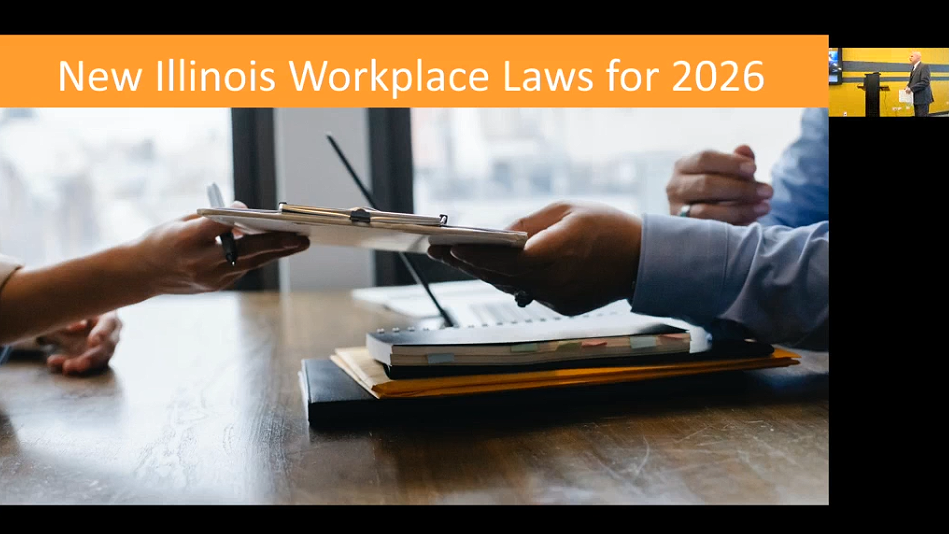Banking and Business – July 2025
Delaware Supreme Court’s Analysis of Indemnification Notices in Merger and Escrow Agreements

Summary
Attorneys drafting or reviewing indemnification clauses and notice provisions in a sale or acquisition governed by Delaware law should be aware of the recent Delaware Supreme Court decision in Thompson Street Capital Partners IV L.P. v. Sonova U.S. Hearing Instruments, LLC, No. 166, 2024, 2025 Del. LEXIS 157 (Apr. 28, 2025). In Thompson, the Delaware Supreme Court reversed and remanded for further fact-finding the Chancery Court's Dismissal of the lawsuit brought by Thompson Street Capital Partners IV L.P. (“Thompson”) seeking to declare that Sonova United States Hearing Instruments, LLC (“Sonova”) had not complied with the Merger Agreement's indemnification notice requirements. The Delaware Supreme Court reversed the Delaware Court of Chancery’s order holding that Sonova’s indemnification notice met the requirements outlined in the parties' integrated merger and escrow agreements.
The case examines the question of whether noncompliance with the timing and specificity requirements in a notice provision may be excused. Here, the Delaware Supreme Court determined Sonova’s noncompliance may be excused if the timing and specificity requirements were not material to the agreement and the noncompliance would result in a disproportionate forfeiture. Because the facts relating to materiality and disproportionate forfeiture were not sufficiently developed in the record, the Delaware Supreme Court reversed and remanded the case for further development of these points.
Background
In 2022, the parties engaged in multiple transactions through which Sonova acquired certain audiology practices. The transactions were governed by two integrated agreements: a Merger Agreement and an Escrow Agreement. These agreements governed the process by which Sonova could submit claims to recover alleged damages from the Indemnity Escrow Fund in the event of a Thompson breach.
Post-closing, Sonova provided notice in writing, alleging that the billing practices at the audiology practices were not in compliance with applicable laws and reimbursement rules. Sonova sought unquantified damages exceeding the full amount of the indemnification fund. Sonova argues that it complied with the notice requirements in Section 9.3.2 of the Merger Agreement. Thompson filed a complaint with two counts. Count I sought a Declaratory Judgment declaring that Sonova had not complied with the Merger Agreement’s indemnification notice requirements, and Count II sought specific performance or a mandatory injunction requiring Sonova to execute a joint instruction letter directing the escrow agent to release the contents of the Indemnity Escrow Fund to Thompson. The Chancery Court found that Sonova’s notice was sufficient to meet the requirements of the Escrow Agreement, but did not determine whether Sonova met the more stringent notice requirements in Section 9.3.2 of the Merger Agreement, which required Sonova to provide reasonably prompt written notice, but in any event not later than 30 days after it became actually aware of such claim, to describe the claim with reasonable detail, including the justification for the demand under the Merger Agreement with reasonable specificity, to provide copies of all available material written evidence thereof, and an estimated amount of damages if reasonably practicable. The last sentence of Section 9.3.2 stated that “The Purchaser Indemnified Parties shall have no right to recover any amounts pursuant to Section 9.2 unless the Purchaser notifies the Members’ Representative in writing of such Claim pursuant to Section 9.3 on or before the Survival Date.”
Decision
The Delaware Supreme Court first determined that the Court of Chancery erred in focusing on the Escrow Agreement instead of the notice requirements in Section 9.3.2 of the Merger Agreement, finding that both agreements are integrated, thus requiring the parties to comply with the provisions of both agreements.
The court then held that the final sentence of Section 9.3.2(a) of the Merger Agreement unambiguously creates a condition precedent that provides for a forfeiture due to Sonova's noncompliance with the notice requirements. The Delaware Supreme Court determined that the condition precedent required Sonova to comply with the stricter notice requirements of Section 9.3 and stated a consequence for noncompliance. The court also determined that Thompson pled sufficient facts such that it was reasonably conceivable that Sonova violated the notice requirements.
The court next turned its attention to whether the forfeiture from noncompliance with the condition precedent could be excused. It cited Section 229 of the Restatement (Second) of Contracts, which provides that "[t]o the extent that the non-occurrence of a condition would cause disproportionate forfeiture, a court may excuse the non-occurrence of that condition unless its occurrence was a material part of the agreed exchange.” Here, while the court found it was unable on this record to resolve the materiality and disproportionate forfeiture questions, it provided a framework for the lower court to use in its analysis. The Delaware Supreme Court instructed the lower court to look at the materiality issue first, such that if the occurrence of the condition is a material part of the agreement, then the proportionality analysis is not applied and the forfeiture cannot be prevented. But if the condition is not material, then the court is to engage in the proportionality analysis. Regarding materiality, the court listed the materiality factors found in Section 229 of the Restatement (Second) of Contracts:
(a) the extent to which the injured party will be deprived of the benefit which he reasonably expected;
(b) the extent to which the injured party can be adequately compensated for the part of that benefit of which he will be deprived;
(c) the extent to which the party failing to perform or to offer to perform will suffer forfeiture;
(d) the likelihood that the party failing to perform or to offer to perform will cure his failure, taking account of all the circumstances, including any reasonable assurances; and
(e) the extent to which the behavior of the party failing to perform or to offer to perform comports with standards of good faith and fair dealing
If the lower court determines that the provision was not material, then it should turn to the proportionality prong of Section 229 to determine if the forfeiture was disproportionate, which requires the lower court to weigh the extent of the forfeiture by Sonoma against the importance to Thompson of the risk from which it sought to be protected and the degree to which that protection will be lost if the nonoccurrence of the condition is excused to the extent required to prevent forfeiture.
Takeaways
Among the takeaways from the Thompson case are the following:
- Ensure notice provisions are consistent throughout those agreements that are to be integrated. If they are not, the more stringent notice provision may prevail. The Delaware Supreme Court stated that integrated agreements must be read together, and so required compliance with both agreements, thus ensuring the more stringent language is adhered to.
- The party desiring strict compliance with a provision’s requirements should consider the purpose of the requirements and develop ample evidence that the parties, in negotiating the requirements, considered them to be material, in order to avoid the other party from being excused for its noncompliance with them. The party desiring strict compliance should aim to develop the Section 229 materiality factors listed above.
Thanks go to our summer associate, Slade Morley, for his help writing this article. For further inquiries or questions, please contact me at smigala@lavellelaw.com or (847) 705-7555.
More News & Resources
Lavelle Law News and Events












